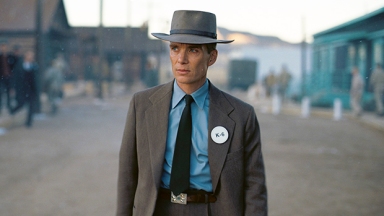
View gallery

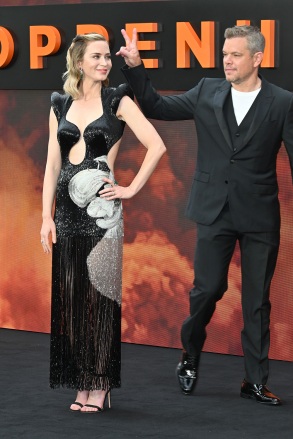

Image Credit: Universal Pictures/Everett Collection
Oppenheimer is so much more than just a movie about the making of the atomic bomb. What happens when your greatest achievement also has the power to destroy the world? And not just literally. The psychological consequences of this creation begin dismantling global and political stability the moment the button is pressed to make the bomb go boom.
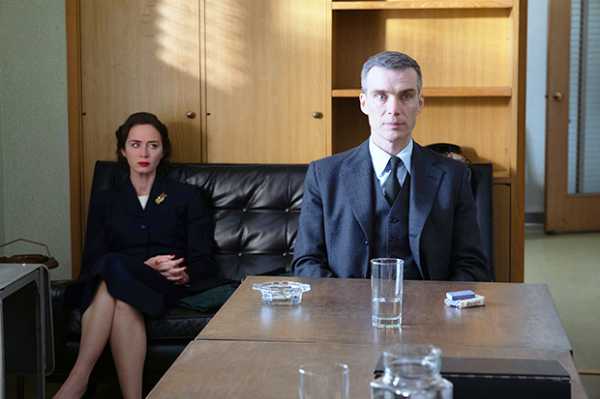
Cillian Murphy and Emily Blunt in ‘Oppenheimer.’ (Universal Pictures/Everett Collection)
The film chronicles theoretical physicist J. Robert Oppenheimer’s life from its aspiring start to its bittersweet end. Oppenheimer focuses on the lead-up to the first detonation of the nuclear weapon at Los Alamos, a.k.a. the Trinity Test, and Robert attempting to get his security clearance renewed by the U.S. government. In the years since Robert became known as the “father of the atomic bomb” and helped win World War II, political power players have used this period to strip Robert of his voice, one that’s grown louder as he sounds the alarm about controlling nuclear power.
View Related Gallery


Editorial use only. No book cover usage. Mandatory Credit: Photo by Nbc-Tv/Kobal/Shutterstock (5882396h) Robert Downey Jr Saturday Night Live – 1985 NBC-TV USA TV Portrait
It’s a tale as old as time. Power corrupts. Ambition can blind us from the truth. Robert battled both throughout his life. He had the world in the palm of his hand the second the Trinity Test was a success, but all that energy only becomes more volatile with time. Oppenheimer walks us through that moral quandary inside Robert that presses on his mind the further he gets from his time at Los Alamos.
Oppenheimer is a riveting psychological exploration. Robert — a man of science, a man of truth — begins to dissect his decisions as he’s slowly and deliberately silenced. He’s referred to as the “American Prometheus.” While Prometheus gave fire to the people — as Robert did — he also suffered eternal torment because of it. When all is said and done, was it worth it?
Running parallel to Robert’s quest to keep his voice alive is a riveting government drama centered around Lewis Strauss, Robert’s former colleague. This chapter of the story builds slowly over the course of the 3-hour film, but it explodes with fervor in the final act as we witness the depths people will descend to for revenge.
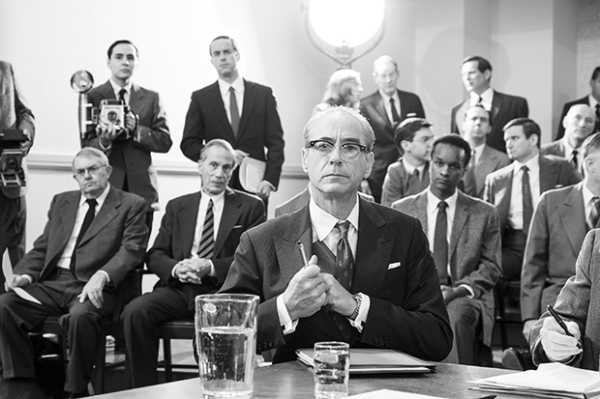
Robert Downey Jr. in ‘Oppenheimer.’ (Universal Pictures/Everett Collection)
Robert’s creation was a turning point in history. Atomic bombs were quickly used against the Japanese in Nagasaki and Hiroshima with a massive human toll. Nuclear power became the most important issue as countries fought for supremacy in building weapons of mass destruction. This thrust the United States into the Cold War with Russia, prompting decades of uncertainty and fear.
It’s inching closer and closer to a century since the creation of the atomic bomb, and new threats have stepped into the spotlight. Oppenheimer’s themes feel eerily prescient with the rise of AI and the possible (and probable) consequences of uncontrollable technology.
Oppenheimer is nothing without the captivating, nuanced performance of Cillian Murphy as J. Robert Oppenheimer. The Peaky Blinders star constantly appears to be crackling with tension, as if he could detonate at any moment. This is a tour de force moment for Cillian that should earn him the praise he’s deserved for years. Robert Downey Jr. sheds his Tony Stark alter ego and ferociously attacks his role as Lewis Strauss with blunt force. His performance in Oppenheimer illuminates his incredible, expansive talent. Matt Damon is the perfect foil to Robert in a strong supporting role that gives the little bit of levity that’s needed. Alden Ehrenreich, Dane DeHaan, Rami Malek, Kenneth Branagh, Josh Hartnett, David Krumholtz, and Benny Safdie all have standout moments as well.
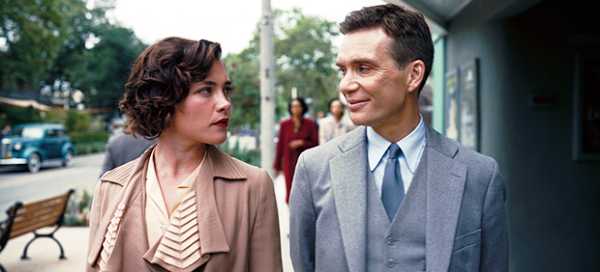
Florence Pugh and Cillian Murphy in ‘Oppenheimer.’ (Universal Pictures/Everett Collection)
Emily Blunt plays Kitty Oppenheimer with a formidable vigor. She’s incredibly supportive of her husband, but she clearly feels constrained by her role as a mother and a wife. Florence Pugh’s Jean Tatlock always remains a mystery to Robert. An equation he can never solve. Her role is small but potent. She has an indisputable impact on Robert. Florence commands the screen every time she steps into frame.
Christopher Nolan’s filmography has clearly been building up to Oppenheimer. The cinematography is sublime. Every shot is filled with such vividness and depth. The film is a remarkable and breathtaking achievement for the director. The epic visuals feel cosmic at times, especially during the Trinity Test. Oppenheimer is a triumph that simply must be seen on the big screen. In the years to come, Oppenheimer’s impact on cinema and viewers will be indelibly felt. Don’t miss out on this monumental cinematic moment.
Click to Subscribe to Get Our Free HollywoodLife Daily Newsletter to get the hottest celeb news.
Sourse: hollywoodlife.com
